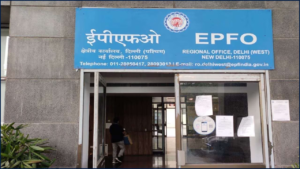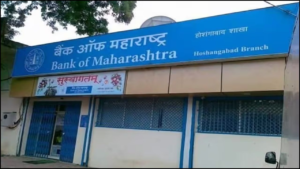
CICR-Approved Cotton Seeds and Technologies in 2025: In 2025, cotton farmers across India have a golden opportunity to transform their harvests using CICR-approved cotton seeds and technologies. These aren’t just regular seeds—they are the product of years of research by the Central Institute for Cotton Research (CICR) under the Indian Council of Agricultural Research (ICAR). From Bt and desi cotton varieties to High-Density Planting System (HDPS) and AI-driven pest control, CICR is revolutionizing how cotton is grown in India.
This guide explains exactly how to access these seeds and technologies, use them to your advantage, and connect with experts, training, and even subsidies.
Table of Contents
CICR-Approved Cotton Seeds and Technologies in 2025
| Point | Details |
|---|---|
| CICR Full Form | ICAR-Central Institute for Cotton Research |
| Main Locations | Nagpur (HQ), Sirsa, Coimbatore |
| Seed Types | Bt Cotton, Non-Bt Varieties, Desi Cotton (G. arboreum) |
| Technologies Offered | HDPS, AI-Pest Monitoring, e-Kapas Advisory |
| Where to Get Seeds | CICR centers, KVKs, State Agri Offices |
| Training Resources | Field Days, FLD programs, Online Manuals |
| Official Website | https://cicr.org.in |
Access to CICR-approved cotton seeds and agricultural technologies can significantly boost your farming income in 2025. With scientifically bred varieties, proven techniques like HDPS, and real-time solutions like AI pest alerts and e-Kapas, CICR offers a full package. Whether you’re a smallholder or large-scale grower, this is your chance to partner with India’s top cotton research institute and cultivate smarter.
Don’t wait—reach out to your local KVK or CICR center today!
Understanding CICR-Approved Cotton Seeds
CICR-approved cotton seeds are developed through decades of research focused on productivity, pest resistance, and regional adaptability. Unlike some commercial hybrids, CICR seeds are scientifically validated, government-backed, and often better suited to Indian soil and climate.
Types of Seeds Offered by CICR
- Bt Cotton (e.g., CICR 3, CICR 5): Designed to resist bollworms.
- Non-Bt Cotton: Safer for areas facing Bt resistance or organic practices.
- Desi Cotton (Gossypium arboreum): Hardy and drought-resistant. CICR is pushing for revival due to sustainability.
These varieties are recommended based on agro-climatic zones, which ensures better crop performance and reduced pesticide reliance.
List of Popular CICR Varieties and Recommended Zones
| Variety | Type | Suitable Zone |
|---|---|---|
| CICR 3 | Bt | Maharashtra, Gujarat |
| CICR 5 | Bt | Telangana, MP |
| PA 812 | Desi | Punjab, Haryana |
| Phule Dhanwantari | HDPS | Vidarbha, Marathwada |
| Khandwa 2 | Non-Bt | MP, Chhattisgarh |
How to Procure CICR-Approved Cotton Seeds
1. CICR Regional Centers
Visit any of these three locations for direct seed procurement:
- Nagpur (Maharashtra) – Central and western India
- Sirsa (Haryana) – Northern cotton-growing regions
- Coimbatore (Tamil Nadu) – Southern belt
Contact details:
- Email: [email protected]
- Phone: (07103) 275536
2. Krishi Vigyan Kendras (KVKs)
KVKs often host training camps, distribute kits, and offer seeds at low cost. Use the KVK Locator to find one in your district.
3. Front Line Demonstration (FLD) Programs
Join an FLD program to get:
- Free or subsidized seeds
- Live training and demos
- Monitoring by CICR experts
Farmers can register through their nearest KVK or CICR office during sowing season.
4. State Agriculture Departments
Each state’s agriculture department has annual distribution drives. Some states also:
- Provide input subsidies (Rs. 500–1500 per acre)
- List CICR seeds in their approved seed catalog
- Bundle seeds with crop insurance and soil testing kits
Best Time to Buy and Sow CICR Cotton Seeds (By Region)
| Region | Sowing Season | Best Time to Buy Seeds |
|---|---|---|
| Central India (Maharashtra, MP) | June–July | April–May |
| North India (Punjab, Haryana) | April–May | February–March |
| South India (TN, AP) | October–November | August–September |
Planning in advance helps you access training, subsidies, and avoid last-minute shortages.
Cutting-Edge CICR Technologies Farmers Can Use
CICR doesn’t stop at seeds—it brings complete farming solutions:
High-Density Planting System (HDPS)
HDPS promotes planting more plants per unit area with smaller canopy and faster maturity. Farmers in Vidarbha using HDPS report up to 35% yield gains with 30% less water.
AI-Driven Pest Monitoring
In collaboration with ICAR and state departments, CICR has launched:
- AI-powered pheromone traps that track pests like pink bollworm.
- Real-time alerts sent to phones using the e-Kapas system.
This saves ₹3000–₹5000 per acre by reducing unnecessary pesticide sprays.
e-Kapas Digital Advisory
This service provides:
- SMS alerts in regional languages
- Fertilizer advice based on soil reports
- Monsoon pattern forecasts
To register, give a missed call or submit your mobile number via your KVK office.
Real-Life Farmer Success Story
Rajesh More, a cotton farmer from Jalgaon (Maharashtra), adopted HDPS with CICR-3 Bt cotton seeds in 2024. His yield jumped from 10 quintals to 14 quintals per acre. “With CICR support, I used 30% less pesticide and got better market price due to fiber quality,” says More.
Such stories are not rare—CICR has documented over 2,000 farmer success cases on its platform and during field events.
New CICR Research Highlights (2024–2025)
- Drone-compatible seed coatings for automated sowing.
- RNA-based pink bollworm resistance in testing phase.
- Carbon sequestration studies showing desi cotton enhances soil health.
- Cross-collaborations with startups on smart irrigation kits.
These innovations are expected to be rolled out by mid to late 2025 in pilot states.
Call to Action for Farmers and Agri-Entrepreneurs
- Register for CICR field days or training programs.
- Request seed trials from your district agriculture office.
- Subscribe to the e-Kapas service for local updates.
- Start planning your kharif sowing now for early access.
Use CICR as your partner for success—not just a supplier.
Bt Cotton Varieties by CICR – A Game-Changer for Indian Farmers
FAQs About CICR-Approved Cotton Seeds and Technologies in 2025
Q1. What are CICR seeds best known for?
They are known for pest resistance, better yield, region-wise suitability, and scientific backing.
Q2. Can I buy CICR seeds online?
Currently, seeds are distributed only via physical centers, KVKs, or authorized dealers.
Q3. Is there any warranty on CICR seeds?
Yes. CICR seeds come with certified quality tags. Any complaint can be filed with the distributing agency.
Q4. How can I join an HDPS training?
Contact your local KVK or CICR regional center. Training slots are announced ahead of sowing seasons.
Q5. What’s the future of Desi cotton from CICR?
Desi cotton like PA 812 is being promoted under sustainable cotton farming initiatives for its resilience and environmental benefits.
















